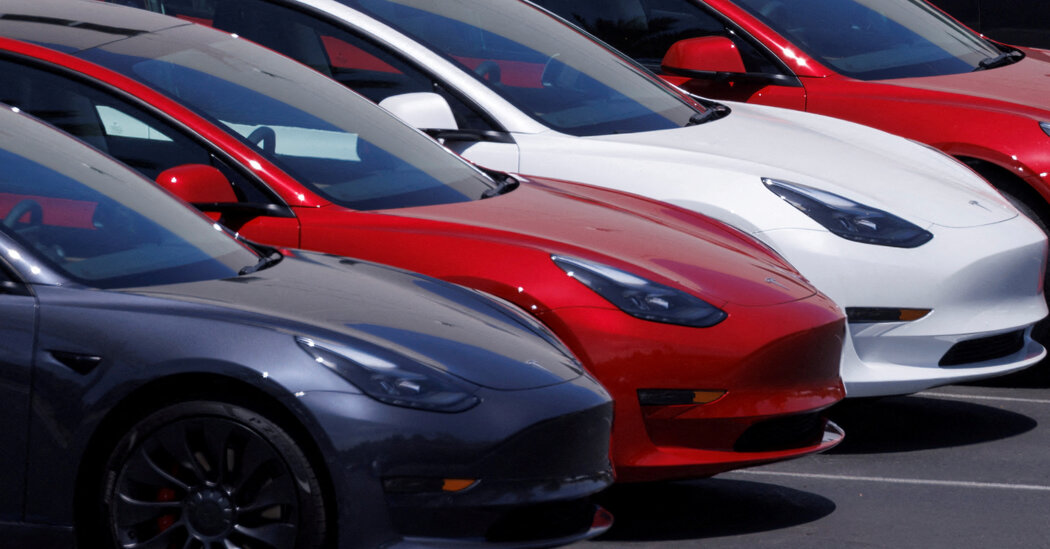Tesla said on Saturday that vehicle deliveries fell 18 percent from April to June from the first quarter of the year, a rare slowdown for the company caused by manufacturing problems in China.
Tesla sells more electric cars than any other company and until recently expanded rapidly in China, Europe and the United States as rising gasoline prices increased the appeal of battery power. Other automakers were jealous of Tesla’s growth rate.
Tesla shipped more than 254,000 vehicles in the quarter, compared to 310,000 in the first quarter. It was the first quarterly drop in deliveries since early 2020, when the onset of the pandemic undermined global car sales.
Tesla’s sales would likely have been even higher had it not been for the pandemic-related shutdowns and supply chain issues that have hampered operations at the company’s Shanghai plant. China has the world’s largest car market and accounts for about 40 percent of Tesla sales.
Manufacturing in China was “an absolute disaster in April and May,” Wedbush Securities analysts Daniel Ives and John Katsingris said in a note to investors last week.
Tesla suggested it had overcome production difficulties and said it was building more cars in June than at any time in its history.
Tesla has more orders than it can fill, but demand could slow if the global economy experiences a speed bump. Tesla chief executive Elon Musk warned in a June interview with Bloomberg News that a recession was “inevitable at some point” and that it would be “more likely than not” soon. He has told staff that the company will cut 10 percent of wages.
It seems unlikely that Tesla will match last year’s growth, when deliveries rose 90 percent to 940,000 cars. A 50 percent increase for 2022 is more realistic, according to the Wedbush analysts.
That, they said in a note on Saturday, is still “an impressive feat” given China was “essentially shut down for two months”.
The slower growth is one factor that has prompted investors to reassess Tesla’s chances of dominating the auto industry. Tesla shares are down more than 40 percent from their November peak, even as more buyers are opting for electric cars for their superior energy efficiency.
Depending on local utility rates, an electric car costs significantly less than a fossil fuel vehicle. A Tesla Model 3 standard range gets the equivalent of 142 miles per gallon and costs $450 a year in fuel, according to the Environmental Protection Agency. In comparison, a Honda Accord with a gasoline engine gets 33 miles per gallon and costs $2,200 a year in fuel.

